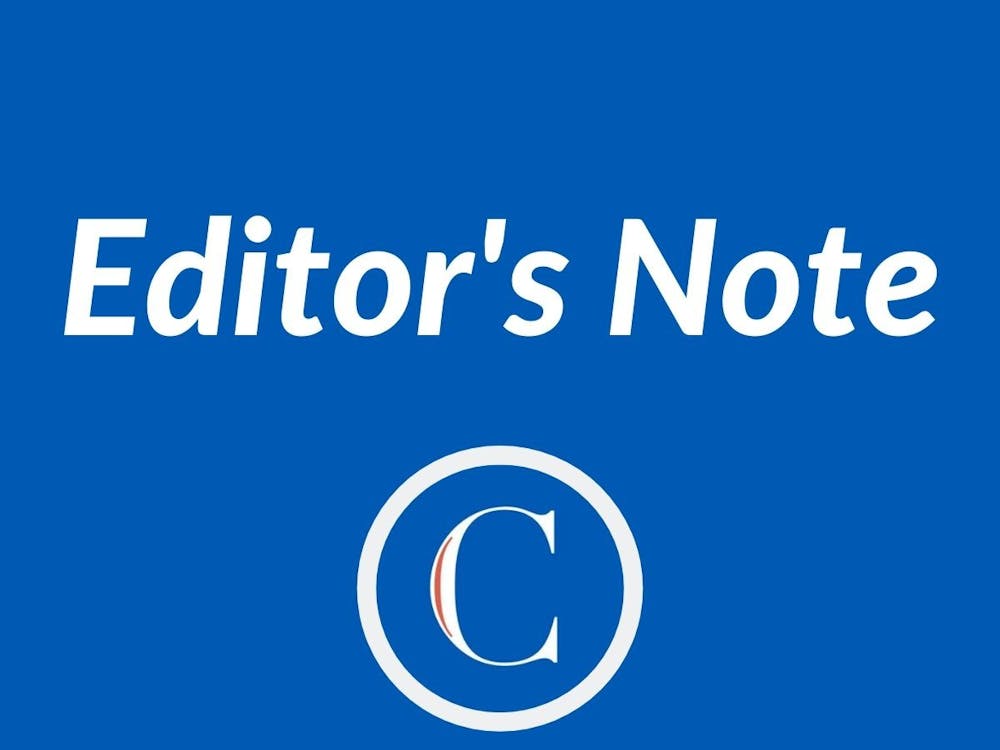I was dreading writing my final few columns. I have a tendency toward the dramatic, and I worried that any words I could manage to string together would seem cliched, empty, already-said.
Strangely, that’s the least of my worries now. Nothing is cliched during a pandemic. All of the long-winded advice, all of the ‘last WNS’ and ‘final Vondy run’ memories that I would’ve felt corny indulging in under normal circumstances take on a new meaning when the rug is pulled out from under us. Suddenly, it feels not only appropriate, but heartbreakingly necessary to lament the end of college; to remember the growth and the exploration, the fun and the adventure, the sweaty necks and the teary eyes. It feels appropriate to romanticize—not because the problems of yesterday were insignificant, but because the problems of today just universally, unprecedentedly suck.
Deep down, I was also pretty cliched about my responsibility to this paper. I believe in us so deeply: as a tool to hold the powerful accountable, as a record of the collective zeitgeist of our time, as a space for reflection and intervention.
But today, I can say all of that corny stuff out loud, because our responsibility is greater and more urgent than ever before. As the institutions at Duke and those beyond respond to the COVID-19 pandemic, they are sailing uncharted waters and will inevitably make grave mistakes. Universities across the globe have never had to send their students home for a public health crisis of this level. Scrolling through the digitized archives of the Chronicle, you will find no parallels in Duke’s history—nothing to draw on, nothing to consult. In the coming days, we will have to learn to write the script ourselves. And years from now, when people look back in an effort to understand how we coped, how we organized, how we protected our most vulnerable, they will come here, to these very pages, in search of some distant word from the past.
To that end, I ask that you write to us. I ask that you share your shortest thoughts and your longest soliloquies, your most vulnerable feelings and your most rational recommendations. I’m talking funny and earnest, political and personal, self-assured and scared. Because when international students are pushed onto the streets, when students may not have access to their medicines, when the long-anticipated goodbyes are ripped away, we owe it to the future to respond in some tangible manner, to document this time—if only in the opinion section of the Chronicle. So call out whoever needs to be called out, encourage whoever needs to be encouraged and share whatever you need to share at chronicleletters@duke.edu. The more information we can get to each other, the better we will collectively fare.
In my time at Duke, I spent plenty of late nights in the Chronicle office. Walking across the quad back to Allen Lot in the dead quiet of night, with the cold air crystallizing everything around me, I would force myself to stand in the middle and look up. The Chapel with its towering spires all backlit against the dark sky; the trees that feel so sturdy stretching their limbs against the stars. Dew just beginning to collect on the grass. In the silence like that, everything felt so unbelievably stoic, so unchanging even as the world and the students and the opinions around it were in constant motion.
We may not be physically able to look up at the Chapel right now. But that stoicism is ours to embody nonetheless. I feel called to it, cliched as it sounds.
Leah Abrams is a Trinity senior and the Opinion Editor for Vol. 115.
Get The Chronicle straight to your inbox
Sign up for our weekly newsletter. Cancel at any time.

Leah Abrams is a Trinity senior and the Editor of the editorial section. Her column, "cut the bull," runs on alternate Fridays.

